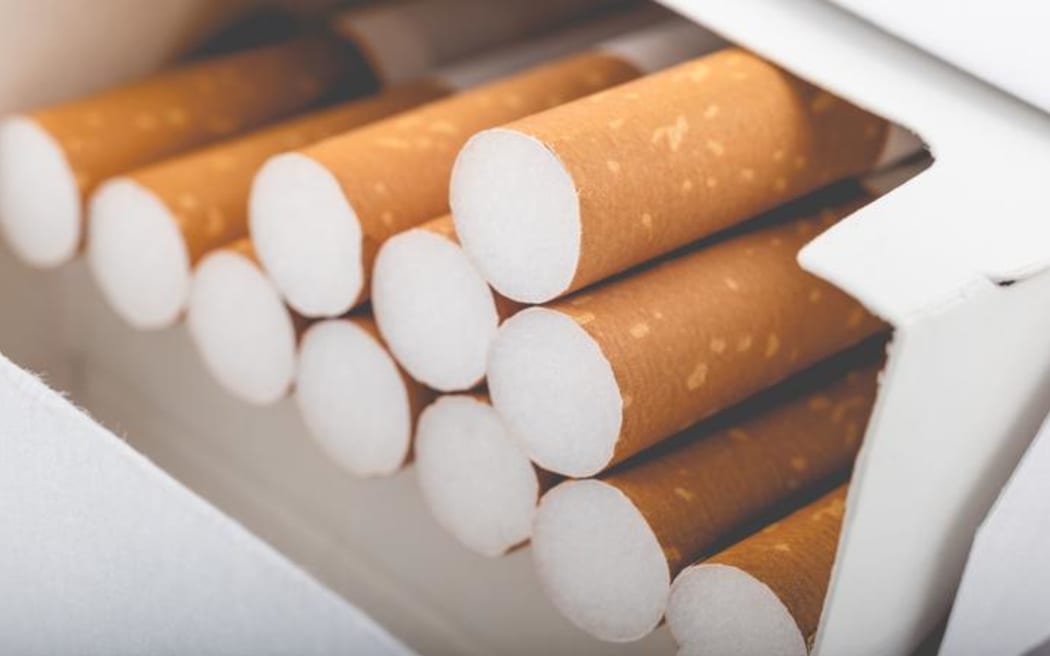
Photo: 123RF
New Zealand Customs says it has seen a significant and concerning increase in illicit tobacco seizures.
The size of imports has grown steadily in the past six years and smuggling techniques have become more sophisticated.
In 2023, officials seized 8.5 million illegal cigarettes, compared to the five million intercepted in 2022.
Almost two tonnes of loose tobacco was also seized, a drop from the 3.9 tonnes seized in 2022.
However, since 2017, illegal cigarette yearly seizures have almost tripled, and the amount of loose tobacco caught has almost quadrupled.
Nigel Barnes, chief customs officer for fraud and prohibition, said the significant increase could be due to a growing criminal network.
"What's concerning about it is the increase in sophistication and the involvement of transnational organised crime in tobacco smuggling, because that signals that the suspects we are dealing with tend to be better resourced that they previously may have been."
In previous years, cigarettes and tobacco turned up in small parcels at the international mail centre.
Now it was being concealed in sea cargo, sometimes hidden in construction materials like roofing frames and gypsum board.
Barnes said the majority was coming from southeast Asia.
Criminals see it as a lucrative trade as the prices keep rising in New Zealand.
Smugglers are setting up shell companies or using existing business details to mask their importation.
In 2023, three Malaysian nationals were arrested in Auckland for smuggling half a million cigarettes into the country.
The suspects allegedly used New Zealand company details on importation documents, directing shipments to a residential and storage address in the city.
"This is an established methodology which is used not just in New Zealand, but in Australia as well and these people do not operate in isolation.
"They form networks, and they will operate across borders," Barnes said.
Once the tobacco arrived, it ended up in dairies or other shops which sold it under the counter, he said. It was sold online, or through community groups or word of mouth.
Professor of public health at the University of Auckland, Chris Bullen, said the circulation of illegal tobacco was concerning.
"It means that people who might have quit smoking because the price of tobacco was too high and that motivated them to quit smoking or not take up smoking, might access products which are a lot cheaper than the legal market and to continue to smoke and that's bad for their health."
Bullen has researched the illicit tobacco trade and estimates it is about 8.5 percent of the market.
He thought reduced smoking rates and increased numbers of seizures at the border were having an effect, decreasing its share from the 10 percent of the market it was in 2012.
“It's fluctuated around that level until about 2018/2019 and peaked in 2019, [I'm] not exactly sure why, and then it's dropped quite dramatically then popped back up in 2022 again to about 8.5 percent.
"The best way to reduce the risk of major problems with illegal tobacco in New Zealand is to have fewer smokers demanding such products."
Bullen said decreasing the amount of nicotine in cigarettes, part of Labour's soon-to-be-repealed smokefree laws, would be one of the most effective ways to drive down demand.
The government has argued its plan to repeal the smokefree laws will see less tobacco getting onto the black market, because it will not reduce the number of retailers legally allowed to sell the products.
Customs Minister Casey Costello, also Associate Health Minister, declined to comment for the story.
Illegal tobacco seizures:
2023: 8,485,710 illegal cigarettes seized, 1.95 tonnes of loose tobacco
2022: 4.8 million illegal cigarettes seized, 3.6 tonnes of loose tobacco
2017: 3,069,617 illegal cigarettes seized, 543 kilograms of loose tobacco

